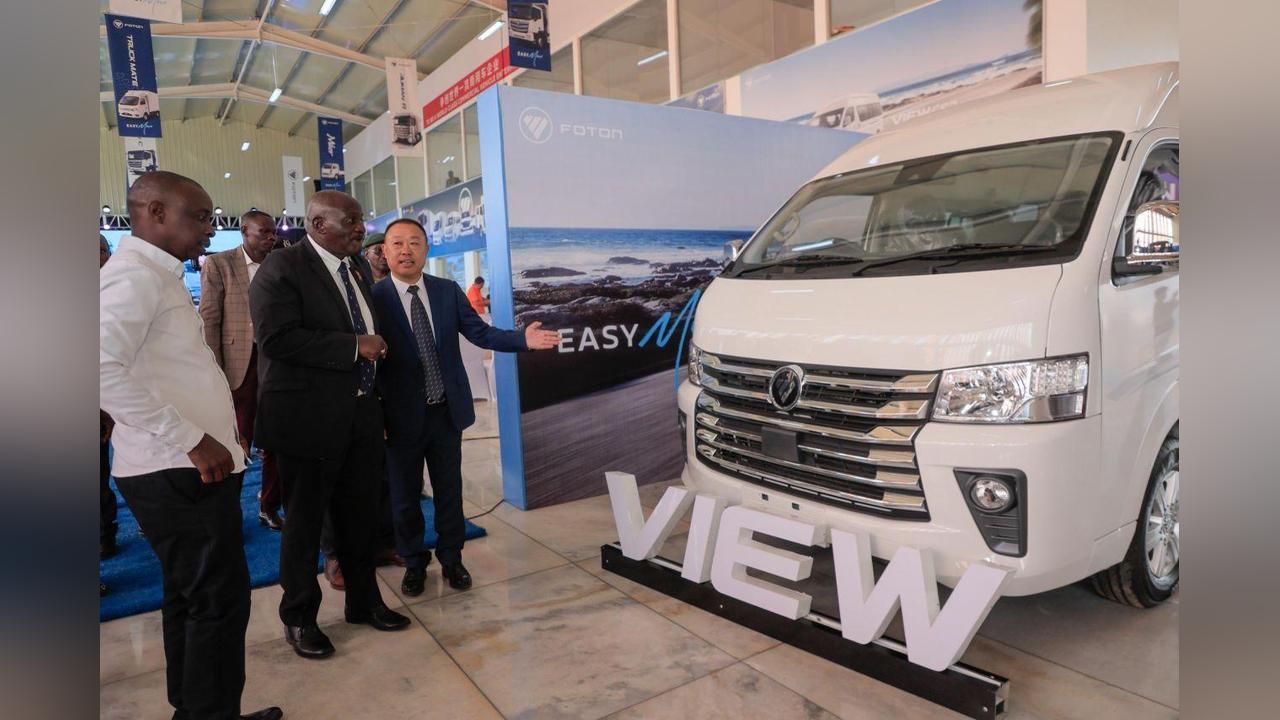Africa-Press – Uganda. The Minister of Works and Transport, General Edward Katumba Wamala, has defended government’s planned mandatory vehicle inspection, assuring the public that the policy is not designed to punish motorists but to save lives and strengthen Uganda’s growing automotive industry.
Speaking at the launch of Foton Motors’ new vehicle plant in Kampala, Katumba likened the exercise to a routine medical check-up, emphasizing that regular vehicle assessment is a preventive measure against accidents.
“I want to correct the impression, because people are talking so much of mandatory vehicle inspection as if I’m going to go on the road and arrest people. No,” he said.
“What we are talking about is your vehicle, the one that carries your family. Just like the way you do a medical check-up, check your vehicle.”
The minister explained that the program will first be piloted within government fleets before rolling out to the general public.
Public Service Vehicles (PSVs) will face the strictest enforcement, while private motorists will be encouraged to voluntarily seek inspection for their own safety.
Katumba used the platform to champion Uganda’s emerging local vehicle assembly sector, describing it as a safer, more cost-effective alternative to importing old vehicles.
He argued that the sector is already creating jobs, reducing maintenance costs, and transferring critical technical skills.
“This is a very welcome development which is adding value to our motor industry in the country,” he said.
“We are getting new vehicles, as opposed to importing vehicles of 10 or 12 years. I was impressed to hear that they [local assemblers] have a very reliable after-sales service.”
The minister noted that government incentives—including duty-free importation of machinery and tax holidays for investors—are designed to keep the cost of locally assembled cars affordable.
“Most of the machinery which comes in for the industry comes in tax-free. They can take away their profits at will. So, I think the vehicles will be affordable,” Katumba added.
He further expressed optimism that Uganda will eventually progress from vehicle assembly to manufacturing its own parts.
“They’re getting the skill from the time of seeing just parts of a vehicle to completing an assembled vehicle,” he said.
On the controversial Electronic Payment System (EPS) for traffic fines, Katumba acknowledged public concern but insisted that the system remains necessary for road discipline.
“We shall make it not so expensive, but again punitive enough to get people to have discipline on the road,” he said.
According to Katumba, the combination of mandatory inspection, a rationalized fines framework, and local vehicle assembly forms part of a broader government strategy to improve road safety, reduce accidents, and build a sustainable motor industry.
Meanwhile, Foton Motors—an automobile brand under Sunbelt Group—announced plans to scale up its local assembly operations in Uganda.
The company has already begun assembling light-duty trucks and is preparing to move into heavy-duty models.
“We assemble locally the light-duty trucks, and our bosses are working hard to ensure that even the heavy-duty trucks are assembled in Uganda,” said Paul Wandulu, Foton’s Sales Manager.
“This will reduce importation, make our products more affordable, and enable us to re-export to other countries.”
He added that the company is targeting Uganda’s rapidly expanding construction and manufacturing sectors, which heavily depend on reliable transport.
“Our light trucks are very good in transporting local products to the market. We are looking at satisfying all categories of customers, from business people to manufacturers,” Wandulu said.
Industry analysts note that global automobile companies are increasingly embracing local assembly in Africa to reduce logistics costs, bypass import restrictions, and leverage regional trade frameworks.
Uganda’s ambitions to position itself as a hub for regional vehicle exports now appear to be gaining momentum.
For More News And Analysis About Uganda Follow Africa-Press






